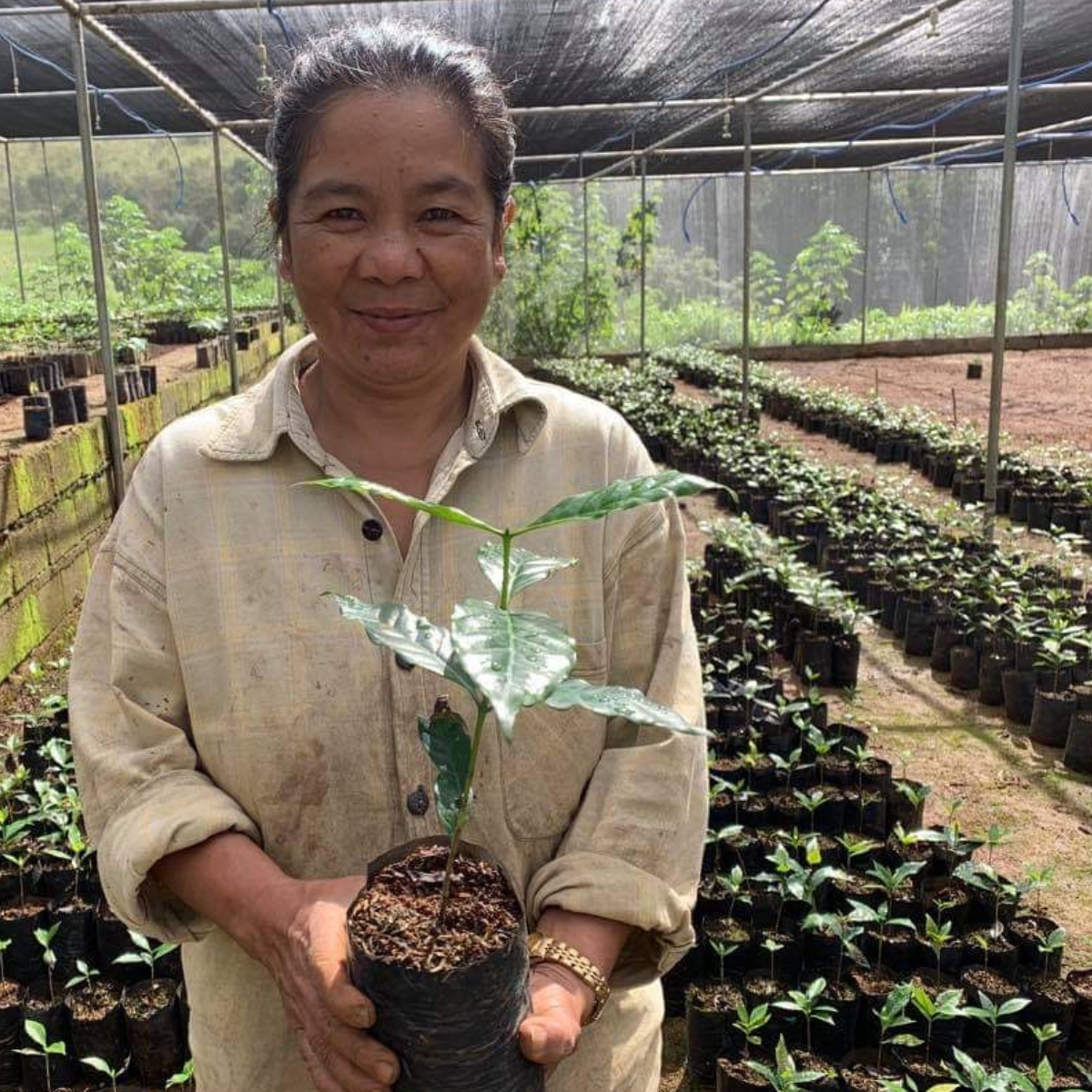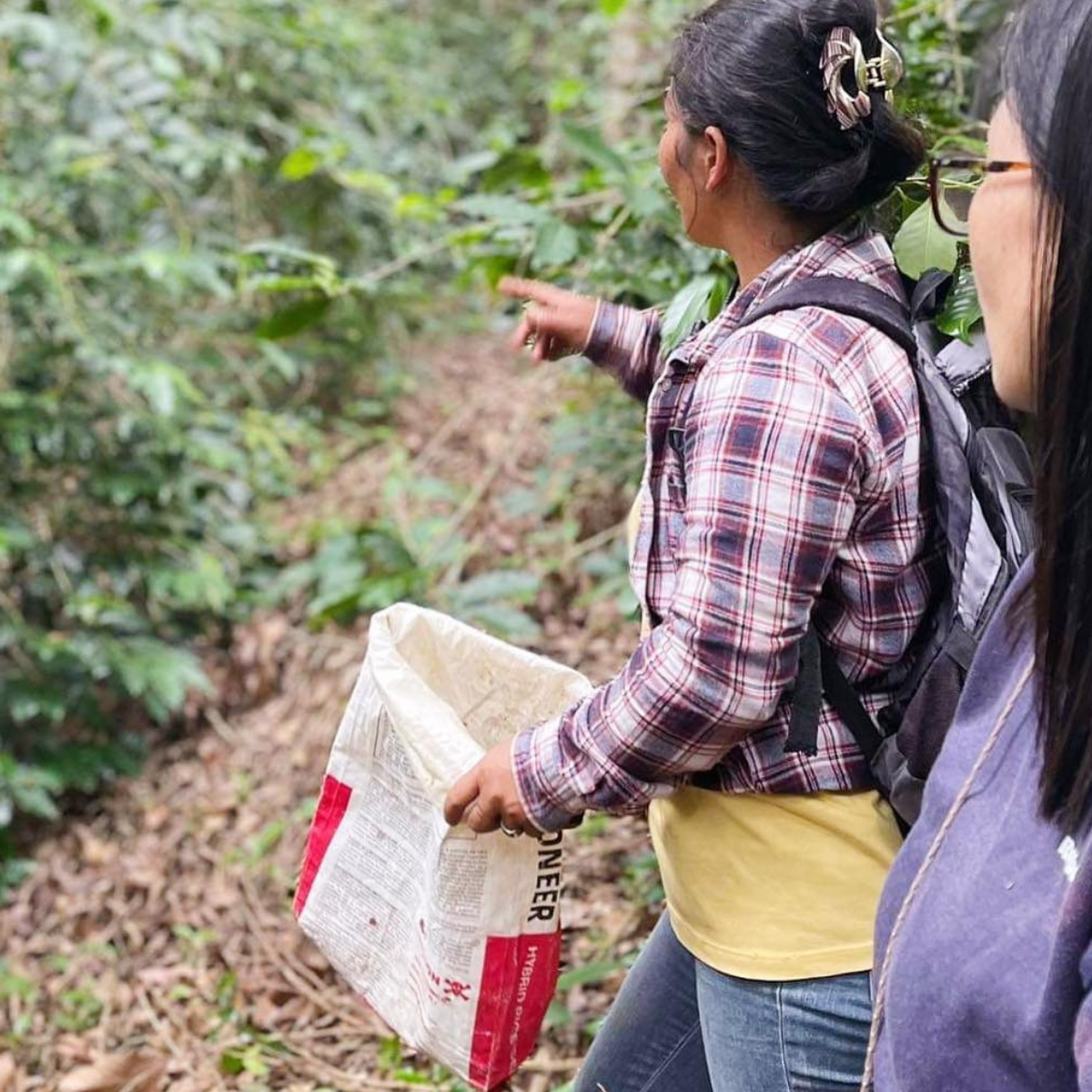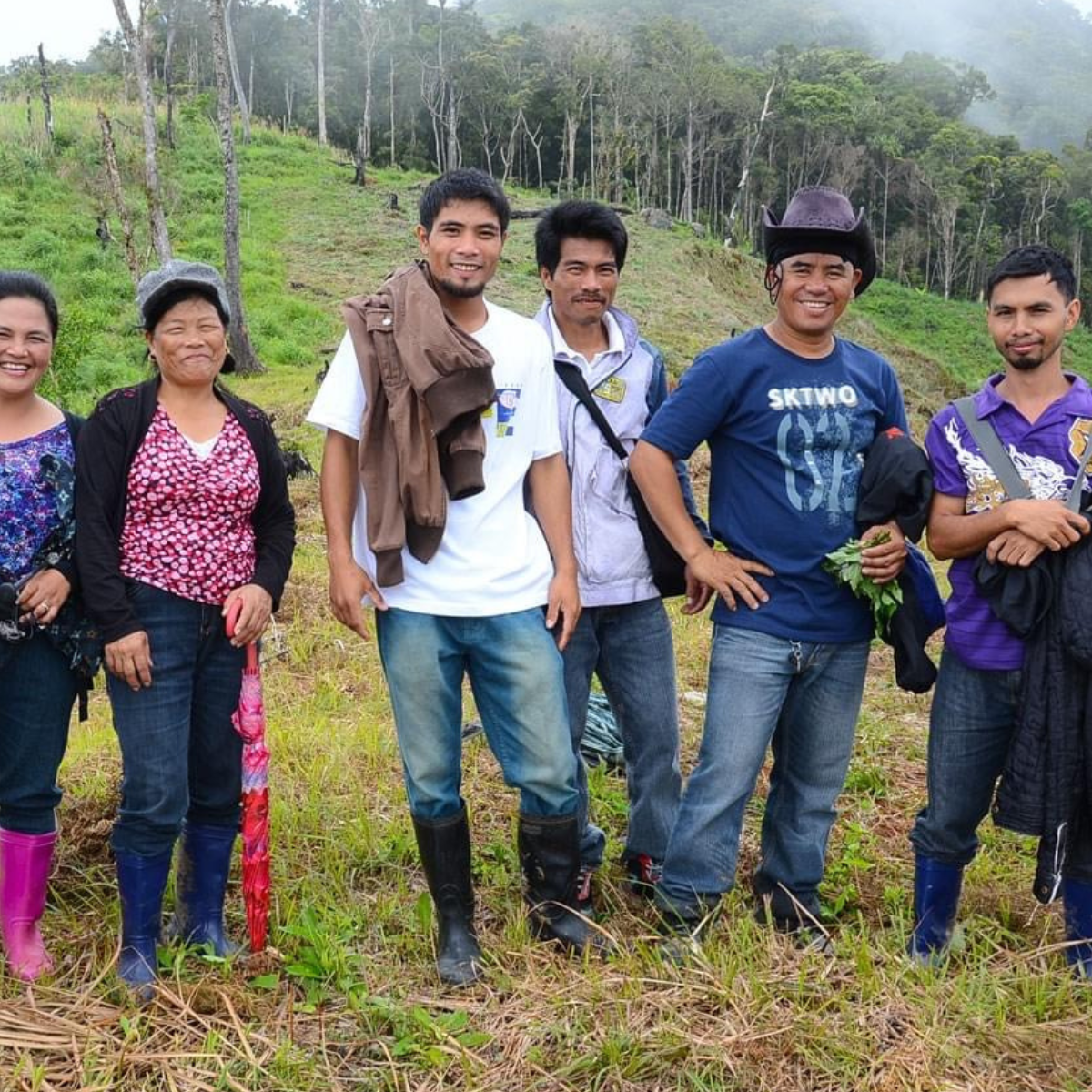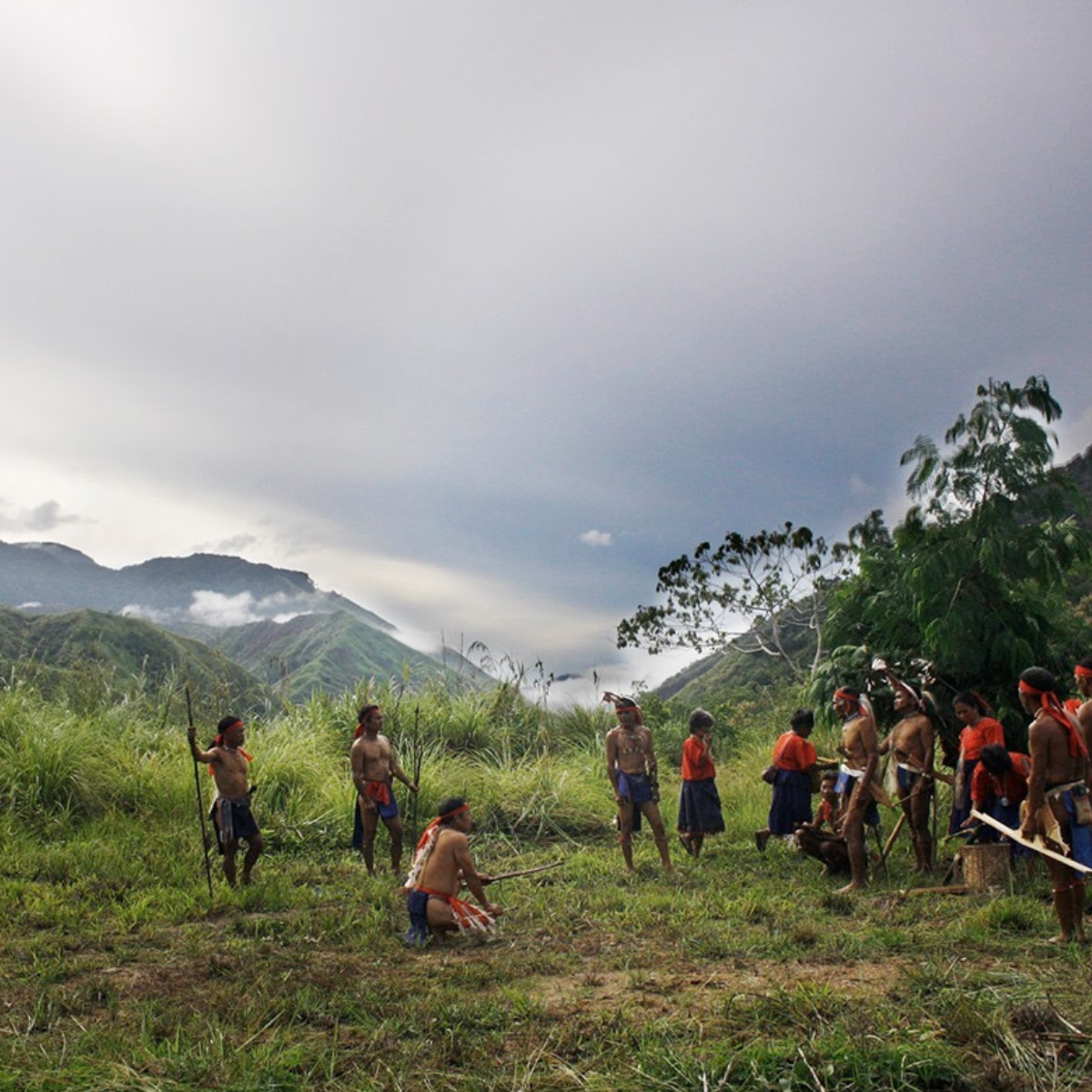Bugkalot Coffee
Bugkalot Coffee Company became a Professionals International project partner in February 2022 to bring more awareness and increase their impact.
Significant Challenge(s)
Deep within the rural communities of the Philippines, lived some of the poorest of the country. The communities covered under this project were rural tribal communities (called Barangays) situated in remote mountain areas within the municipality of Dupax del Sur, in the province of Nueva Vizcaya. Within Dupax del Sur, Abaca & Talbek (the Bugkalot barangays) were some of the poorest barangays, given their remote location, low education level, lack of infrastructure, and low economic activity.
Although the region was considered a 2nd Class Region (based on the municipal annual income), the rural areas were not seeing that kind of income or economic growth. The average household income was about 12% less than the national average and has seen some of the slowest increase of income.
Numerous problems were identified such as:
Many members of the community suffered from hypertension due to poor diet (from lack of resources to eat well), leading to lower life expectancy.
During lean seasons, many struggled to properly feed themselves & their families.
Many members of the community left to find work, leading to split families (and in some cases, end up leaving and starting new families elsewhere).
Very poor educational attainment, further affected employment opportunities.
Destructive agricultural practices, destroying the environment (use of chemical pesticides & fertilizers, illegal logging & deforestation).
Rampant debt issues.
Satisfying Solution
Bugkalot Coffee Company ('BCC') exists to create a sustainable economy in the Bugkalot ancestral domain and nearby areas via production and distribution of coffee and other agricultural products. BCC has established and operates a coffee plantation in the Bugkalot ancestral domain with an integrated, end-to-end agricultural supply chain (including organic fertilizer production for the plantation, coffee nursery, plantation and processing center, as well as third party roasting). They expanded their operations to include coffee trading and processing from nearby coffee growing communities.
It all began in 2013 with a vision to harness the rich potential of the land and empower the indigenous communities. Since their early days, Bugkalot Coffee has been committed to sustainable farming practices and fair trade principles. Their dedication to quality and community development has set them apart in the industry.
In 2017, Bugkalot Coffee started harvesting coffee and quickly gained recognition for the exceptional quality of their beans. As word spread, more and more local farmers expressed interest in joining the venture. Recognizing the opportunity to uplift the community, Bugkalot Coffee welcomed these farmers with open arms.
By 2018, a handful of farmers had begun planting coffee trees, some sourced from government programs and others from Bugkalot Coffee's own nursery. The following years saw a steady increase in the number of farmers taking up coffee cultivation. In 2021 and 2022, Bugkalot Coffee extended its reach by providing seeds to a nearby cooperative, enabling even more farmers to enter the coffee industry.
Business activities geared to Reduce Extreme Poverty and Provide Employment while Efficiently Using Natural Resources:
Target: Reduce extreme poverty for indigenous men, women, and children of the Bugkalot tribal community as measured both in terms of those living on <USD $1.25/day and national definitions. (adapted from Targets 1.1 and 1.2)
Target: Promote full and productive employment and decent work for all women and men, including young people and those with disabilities, and equal pay for equal work value. (adapted from Target 8.5)
Target: Promote the sustainable management and efficient use of natural resources. (adapted from Target 12.2)
“Measured By” Outcomes
Feb 2022 - April 2024
Amount of Grant Given
“What Does Your Donation Go Towards?”
Stories of Substantial Benefits
In 2022 - 2024, they broadened their cooperative involvement from 200 to 250 members. These community members are potential workers in the plantation (averaged 28 during this time), but also have a voice in the direction of the business and how the profits will support the community. There’s plenty of work to do on the plantation such as fertilization, pruning, pest management, monitoring activities, irrigation, weeding/clearing of land, soil management, and of course harvesting and sorting the cherries. Just over $64,000 USD flowed into the local economy because of this social enterprise in the 9 quarters with PRINT.
They increased their potential by planting 30,000 seedlings in their nursery and then planting an additional 7000-9000 coffee trees over those couple of years in their own 45 hectares of land. Each hectare held about 1000 coffee trees which had produced 3700-6000 kg of cherries a year. The expectation is to harvest at least 6000 kg each year. They sold and distributed 15,000 of those seedlings to local farmers as well.
In July of 2023, they were hit with a typhoon which damaged their greenhouse, drying/storing sheds, and some of their coffee trees. In addition, inflation and a war in Ukraine dramatically impacted their costs of doing business. They were able to rebuild with improvements, and also looked at other potential parallel projects for the cooperative to bridge the gap such as connecting local farmers with city markets willing to purchase consistently at a fair price.
Bugkalot Coffee not only invested in those working on the coffee plantation, but assisted other community members to find jobs, obtain training, get rides to the local city for work, and even develop a scholarship program for people in the city to sponsor a Bugkalot High School student. Examples of going beyond their coffee plantation focus include Melanie, Anarose, and Jhoy, Melanie worked at the cooperative for a year before they helped her find a job in the city of Manila. Since then, she was gaining valuable experience in the food industry at a local restaurant/commissary. Her work was important as they were also working to develop alternate crops/products that will be grown & produced (or even processed) in the tribe and will then be commercialized. Similarly, Anarose and Jhoy were learning a wide range of skills at their café/restaurant, from front-of-house work to roasting coffee. These skills could be instrumental when BCC eventually opens their own café. Another goal at this time was to roast their own beans rather than through a third party roaster.
In 2023, they participated in a few industry events such as the Manila Coffee Festival and the Philippine Coffee Expo to expand their networking and notoriety. They had a great time showcasing their coffee, their work, and of course the pride of the Bugkalot community. The success of Bugkalot Coffee underscores the transformative power of social enterprises in driving sustainable development. Through their inclusive business model, Bugkalot Coffee is not only creating economic opportunities but also preserving the cultural heritage and environmental integrity of the region.
Bugkalot Coffee Company continues to make a difference in their region and local communities. The project finished with Professionals International in April of 2024 as it finished up its latest agreement and became increasingly self-sustaining. You can find them at bugkalotcoffee.com or on Instagram at @bugkalotcoffee










